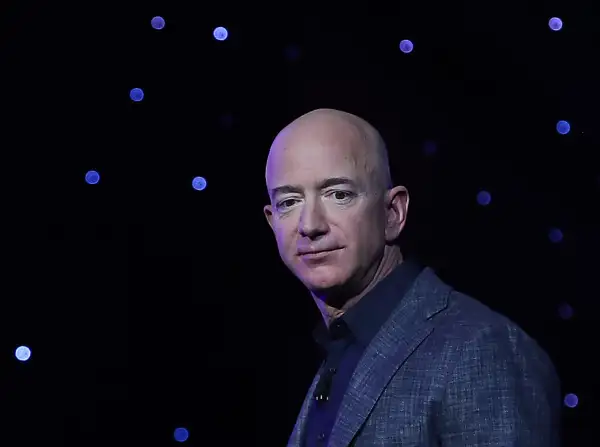This Is the Book That Helped Make Jeff Bezos the World’s Richest Man

By the end of last year, Amazon founder Jeff Bezos had amassed a fortune estimated at around $132 billion. Even after the tabloid scandal that prompted his divorce earlier this year, Bezos still held onto an estimated $109 billion worth of Amazon stock — along with the title of the world's richest man.
These eye-popping numbers make it easy to forget that Jeff Bezos's net worth wasn’t always astronomical. As an internet and e-commerce pioneer, Amazon had some home run ideas, sure, but there were also plenty of foul balls and some projects that were simply a swing and a miss (remember the Amazon Fire Phone fail?).
Just how did Jeff Bezos cope with failures and come up with the winning ideas that helped make Amazon an enormous success — and make himself incredibly rich in the process?
In a new Vox podcast with Kara Swisher of Recode, former Stanford professor Jim Collins, the author of business books including Good to Great: Why Some Companies Make the Leap … and Others Don’t, recalled a phone call he got from Bezos back in 2001 that changed the trajectory of Amazon, which was then a four-year-old company. At the time, Amazon was struggling in the wake of the dot-com bust and hadn’t yet turned a profit.
Collins recounted to Swisher how he visited the Amazon campus and talked with Bezos and the other executives about a core idea of his book: Viewing business growth and success as a giant flywheel. The idea, he explained in the podcast, is that all of a company’s activities should be dedicated to creating and building momentum. “It’s not a list of things you want to do drawn as a circle, it’s an inevitable, ‘building A will drive B,’” he said. “The key is the causal linkage.”
Good to Great: Why Some Companies Make the Leap … and Others Don’t gave Bezos and his team the road map for a strategic shift in what they needed to do to put that proverbial flywheel in motion. And it worked; they made the leap. Amazon turned its first profit in the last quarter of 2001, and it’s arguable that a big reason for the company’s meteoric rise has been its focus on sustainable growth for the long haul over short-term profits — in other words, keeping and honing their focus on what Collins called the "inexorable logic" that propels success.
“If you can get the compounding momentum of your flywheel in a world that wants you to do something quick and overnight, it’s an enormously powerful thing,” Collins said.
It’s well-known that Jeff Bezos is a fan of this book. In the 2013 book about Amazon, The Everything Store, author Brad Stone included a roundup of a dozen books Bezos found influential. As might be expected, “Jeff’s Reading List” is heavy on business and management books like Good to Great, though it also includes some unexpected titles, like Kazuo Ishiguro’s novel The Remains of the Day.
It should come as no surprise that Bezos (like fellow billionaire entrepreneur Bill Gates) is a voracious reader; after all, Amazon did start out life as an online bookstore. But the lesson he took away from Good to Great arguably had the greatest impact on his success.
Budding entrepreneurs, take note. If you aspire to emulate Bezos and want to learn more about the flywheel principles, Collins just wrote a companion piece, Turning the Flywheel: A Monograph to Accompany Good to Great, that goes into more detail about the underpinnings and real-life applications of this concept, which helped make Amazon what it is today, and helped make Jeff Bezos the world's richest man.
We’ve included affiliate links into this article. Click here to learn what those are.
